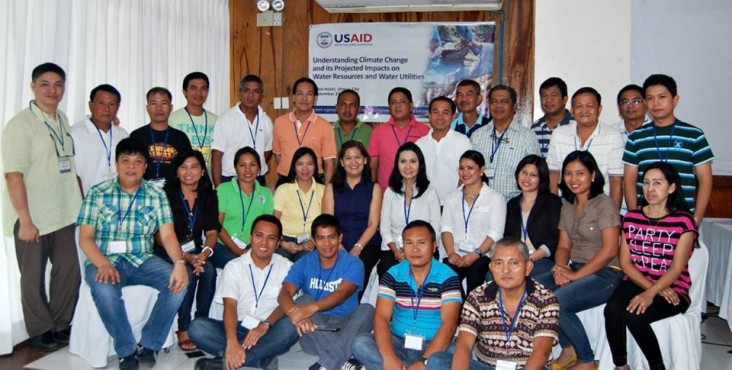
For Immediate Release
The U.S. government and the provincial government of Leyte hosted two conferences this week to improve service delivery and build climate change resilience.
More than 180 participants from Leyte province water districts and small-scale water service providers (WSPs) attended the events organized by U.S. Embassy Manila’s United States Agency for International Development (USAID), through its Water Security for Resilient Economic Growth and Stability (Be Secure) Project. Be Secure aims to increase access to sustainable water supply and wastewater treatment services and strengthen climate resilience in six focal areas including Leyte Province.
The three-day conference entitled "Accelerating Water Security and Climate Resiliency among Small Water Service Providers in Leyte Province” addressed challenges that small-scale WSPs face during natural disasters. Typhoon Yolanda (international name Haiyan), one of the strongest typhoons ever recorded in history, caused massive devastation to Leyte province including to its water systems and other infrastructure. Deborah Bertulfo, Board member of the 4th district of Leyte, and Ms. Dani Newcomb, USAID/Philippines’ Water and Adaptation Team Leader delivered key messages during the opening session of the day’s events.
“Water is vital for sustainable development. Water service providers must be able to deliver water reliably and to look for innovative ways to make water systems more resilient,” Ms. Bertulfo said.
During the conference, WSPs from the province learned strategies to enhance their water supply systems. The conference facilitated peer-to-peer knowledge exchange and coordination among small WSPs. Conference experts represented various Philippine government agencies including the Department of the Interior and Local Government, Department of Social Welfare and Development, National Water Resources Board, and other organizations such as the National Water and Sanitation Association of the Philippines and the Philippine Business for Social Progress.
USAID also organized the two-day “Understanding Climate Change and Its Projected Impacts on Water Resources and Water Utilities” conference which highlighted the urgency for water service providers to take action on climate change adaptation and disaster risk reduction.
In her presentation, USAID Be Secure’s Climate Resiliency Team Leader Bebet Gozun stated that, “Recent strong typhoons like Yolanda, Sendong and Ondoy highlight the vulnerability of the water sector to the impacts of natural disasters. We continue to encourage government and private sector partners to take urgent adaptation measures to reduce vulnerability and build resiliency to ensure sustainable water supply.”
Both conferences culminated with participants developing action plans that will serve as the basis for further support and engagement.
The USAID Be Secure Project addresses interrelated issues to facilitate access to improved drinking water supplies. In close coordination with the Philippine government, USAID/Philippines promotes good governance and builds capacity in water security to promote improved access to water services and more resilient communities. This contributes to the US-Philippines’ Partnership for Growth goal of achieving more inclusive and resilient growth for all Filipinos.
About USAID:
The American people, through the United States Agency for International Development, have provided economic and humanitarian assistance worldwide for over 50 years. In the Philippines, USAID works in partnership with the national government to create a more stable, prosperous and well-governed country through programs that foster sustainable and inclusive growth; strengthen governance and combat corruption, improve access to water, energy, health and education services; increase environmental resilience and natural resource management capabilities. For more information, visit http://www.usaid.gov/philippines or contact USAID/Philippines Development Outreach and Communications via email: infoph@usaid.gov.







Comment
Make a general inquiry or suggest an improvement.